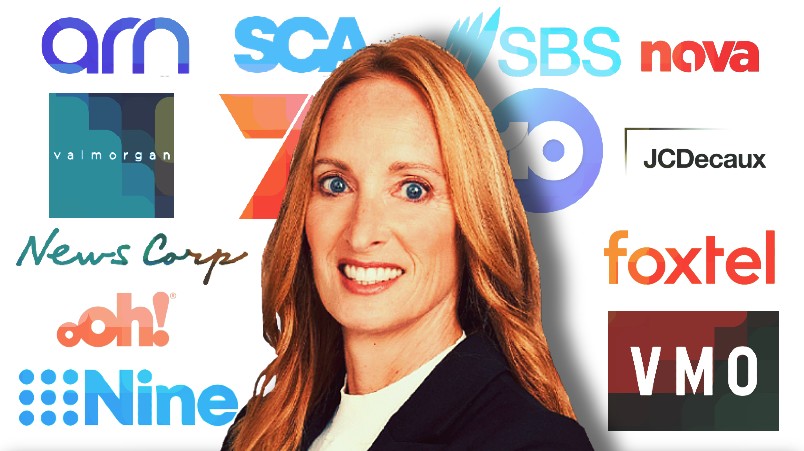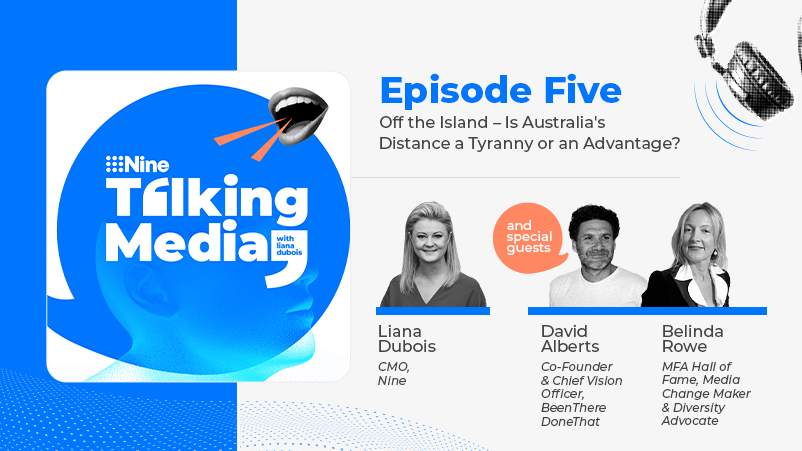Australian publishers lagging global counterparts on sustainability, DE&I, data ethics; ad dollars will start to move next year – Magna

Magna Global MD, Lucy Formosa Morgan: "It's about giving advertisers choice."
Australia’s major publishers are lagging global counterparts on sustainability, diversity and data ethics according to a benchmark study by Mediabrands investment unit Magna – with advertisers starting to factor those aspects into media investment planning.
What you need to know:
- Australian publishers are lagging global counterparts in sustainability and inclusivity per Magna benchmarking study.
- Advertisers will like factor ESG into planning decisions from next year, per Magna MD, Lucy Formosa Morgan.
- Publishers urged to make public commitments and improve reporting in areas such as sustainability, diversity – and data ethics, with digital platforms were found to be lacking in "crucial" aspects of ethical data practice, per report
- Advertisers will recognise progress over perfection, per Formosa Morgan.
- But standardisation and alignment required on metrics such as carbon calculators.
Australia’s major publishers are lagging global counterparts on sustainability, diversity and data ethics according to a benchmark study by Mediabrands investment unit Magna – with advertisers starting to factor those aspects into media investment planning.
Brands are unlikely to move money during the current year based on metrics such as ESG, DE&I or data ethics, according to Magna MD, Lucy Formosa Morgan, “but when we go into the next planning season, that will change”.
Mediabrands’ forecast is aligned with GroupM. Outgoing investment chief Seb Rennie said in October that brands “will start to make serious investment decisions based on carbon footprint" within 12-24 months. Blue chips such as Telstra and Microsoft have been vocal in warning that their environmental, social and corporate governance (ESG) commitments extend to their supply chain, including media.
Magna’s Media Responsibility Index benchmarks publishers on a broader range of measures than carbon – giving brands “levers they can push and pull” according to priorities, per Formosa Morgan.
Publisher pushback?
Some publishers are uncomfortable with media agencies becoming arbiters of social and environmental progress, but Formosa Morgan urged media owners to “lean in”.
“It's about raising the bar for everyone – agencies and the media [owners], improving the situation and giving clients choice. And that's what the Media Responsibility Index is all about: giving clients choice.”
She agreed industry must align on standards for carbon calculators, “to create more of a universal metric”. How broader calculators value and weight social aspects, data ethics and diversity in terms of media investment presents a complex question.
In the meantime, Formosa Morgan said broadcasters – which have perhaps the most challenging job ahead in terms of sustainability due to the nature of production and distribution – should publicly commit to net zero and go further in reporting progress on diversity. Advertisers will recognise progress over perfection, she suggested.
“That is what we are trying to push: go public, start reporting and then show that there is improvement happening.”
Formosa Morgan said the Australian publishers benchmarked in the MRI study, conducted last year “are already making improvements … they are already thinking about the next survey and asking ‘when can we start updating our results so that it is coming through in your tools’.”
Key findings
The Media Responsibility Index (MRI) builds on Mediabrands’ global work running the rule over digital platforms, driven by UM global chief media officer and Australian expat Joshua Lowcock. The first of its kind locally, the intention is to benchmark and report annually.
The 2022 Australia report surveyed ARN, Foxtel, JCDecaux, News Corp, oOh!, Nine, Nova, SBS, SCA, Seven, Ten, Val Morgan and VMO. Data for international social platforms and publishers – the likes of Google and Facebook – was taken from the global version, according to Harrison Boys, Director, Standards & Investment Product, Mediabrands APAC.
Locally, TV companies are the laggards on sustainability, per the Media Responsibility Index, with only one broadcaster, Foxtel, committing publicly to net zero. Out-of-home companies were cited as ‘maturing’ in their environmental approach.
Broadcasters and radio networks have made progress on publishing and consulting on DE&I policies, but only a minority of broadcasters (20 per cent) were found to have benchmarks for diversity of talent.
Broadcasters and traditional media were found to be leading the way on content safety, given strong historical regulation, and the report suggests there is an opportunity to create “an alternative to user generated content” for children and young people by improving controls and tailoring experiences, which could present commercial upside.
Digital platforms were found to be lacking in "crucial" aspects of ethical data practice, per the survey, such as disclosing how data is managed and used, allowing opt-outs and imposing limits on the use and sharing of personal information. How that plays out in the context of proposed new privacy laws – across all publishers – may merit a 2023 MRI in its own right.
The report sets out five recommendations for publishers:
- Implement ESG commitments and publicise commitments.
- Increase measurement and create public DE&I commitments.
- Set the standards for age-appropriate design.
- Increase responsibility in data ethics practices.
- Commit to responsibility through accountability.



